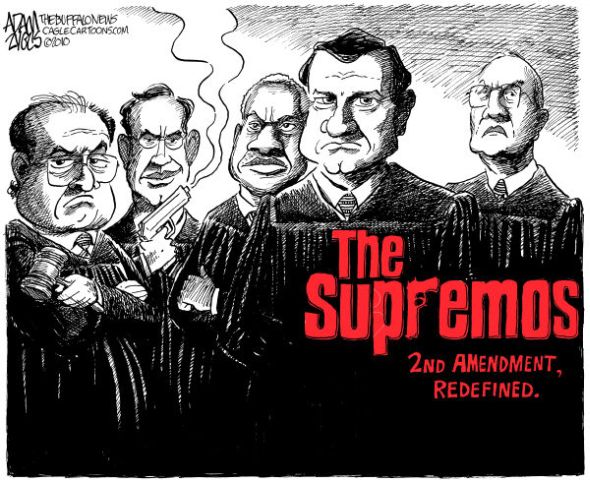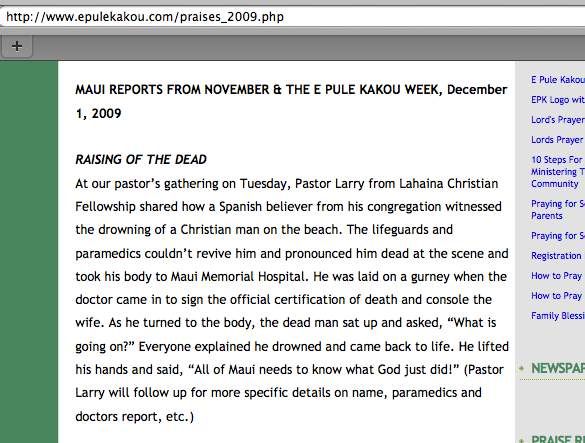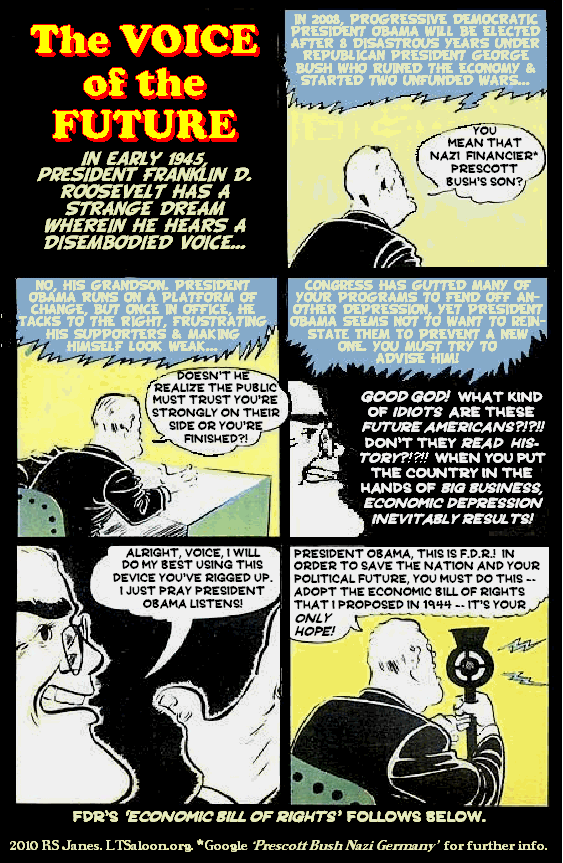
Monday, July 19, 2010
THE GULF WELL IS STILL LEAKING
 The announcement that the Deepwater Horizon Well Head has been capped is being blared all across ABCNNBBCBS with headlines "oil no longer gushing into gulf." Among the more naive, it may be understood if they have the impression the problem is over (except for the cleanup) because that is the impression being sold to the public.
The announcement that the Deepwater Horizon Well Head has been capped is being blared all across ABCNNBBCBS with headlines "oil no longer gushing into gulf." Among the more naive, it may be understood if they have the impression the problem is over (except for the cleanup) because that is the impression being sold to the public. But is it reality, or is it politics? There is no question that the Gulf Oil disaster is not going to help Democrats retain their hold on Congress come November. Senator David Vitter points out, correctly, that President Obama has a vested political interest in convincing the public that the problem is over, so that it will fade from public memory in the three months from now until the elections.
Yes, British Petroleum and Transocean screwed up, but it was Obama's administration which failed to get the problematic US Minerals Management Service to properly exercise their job of oversight and safety inspections on the Gulf drilling rigs. MMS had been scandalized going back to 2008 for doing favors for and accepting gifts (including sexual favors) from the oil companies they were supposed to be keeping an eye on. In some cases, MMS let the oil companies fill out their own safety reports! The US Government knew what was going on and even issued a report on the problems with MMS.
Obama had over 400 days in office to do his job os getting the government to do their job, but failed in his primary task of taking care of this country, apparently too distracted with his love of Israel to pay attention to what was going on closer to home.
Obama makes a good show of rushing down to the gulf to "kick ass" and act like he is taking care of the situation, but in truth his job was to prevent such disasters from happening, not pose like a firefighter standing heroically over the wreckage after-the-fact.
Obama needs the Gulf Oil disaster to go away because it will be an election loser for the Democrats if the public is still thinking about it in November. Obama himself may be untouchable in this election because he is not running, but the public thirst for vengeance will find easy targets in Democratic candidates.
The announcement of the attempt to cap the well this last week was greeted with stunned amazement among experts (not on BP's payroll). After all, BP had admitted back in May that the drill pipe and well casing had at least one leak 1000 feet below the blowout preventer; the reason the Top Kill procedure had failed.
CNN reported on two other potential leaks at 9,000 feet and 17,000 feet.
Back in June, video from the Remotely Operated Vehicles on the ocean floor spotted oil leaking up from fissures in the sea floor near the well.
That the drill pipe itself was destroyed in the initial methane "kick" that ignited the platform fire was underscored by the fact that two sections of the drill pipe had been jammed up inside the blowout preventer.
Common sense (and engineering) will tell you that if you have a pipe with leaks, putting a cap on one leak simply drives the oil out the other leaks. From an environmental perspective this makes no sense, because the oil is still leaking out of the well, just in a different place. Of greater concern is that the oil can flow out into the surrounding rocks the way the mud did during the failed Top Kill procedure, forming what is called a subsurface blowout. This is a huge bubble of oil inside the rock. The danger is if the bubble ruptures and the oil collected over 80 days of leakage rushed to the surface of the gulf all at once. Such a surge of oil could easily engulf and founder the surface ships.
Capping a well with known leaks below the surface really serves only one purpose, and that is to present to the media video images showing the well is capped, so that they can reassure the public the problem is over and please vote Democratic-or-you-are-just-being-a-racist.
But the hard reality being withheld from the public is that the problem is not fixed. The leak has not been stopped, it has just been moved out of sight. The camera feed of the capped well head will be shown constantly to assure Americans that all is well and lull us back to a useful torpor. No other views from around the well will be allowed.
Except that the cat is already out of the bag!
http://www.sodahead.com/united-states/the-gulf-well-is-still-leaking/blog-379559/
ACTA so transparent, the text still has to be leaked


At this point, one gets the sense that Anti-Counterfeiting Trade Agreement (ACTA) negotiators are just yanking our collective chains with their talk of "transparency." After releasing a single version of the ACTA draft text back in April, the negotiations descended into their customary and unnecessary secrecy once more. After the most recent round of negotiations in Lucerne, the governments involved didn't even bother to release the new text. And when the European Commission briefed European members of parliament, the meeting was secret—so Pirate MEP Christian Engström left.
It's hard to say why the negotiators still insist on such secrecy, especially when draft texts of the treaty keep leaking anyway. Another one appeared today (PDF), courtesy of someone in the European Parliament, and it incorporates all the most recent changes from the Lucerne round.
At least ACTA's negotiators have opened up a bit when it comes to even discussing the treaty. US negotiator Stan McCoy spoke about ACTA this week in DC, while EU Commissioner for Trade Karel De Gucht held a public briefing yesterday at the European Parliament. And ACTA negotiators did take some questions from critics at Lucerne.
So—progress, of a sort, but it wasn't enough to win over 90 academics and advocates who gathered in Lucerne to discuss the ACTA. In late June, this group issued a statement that said, "We find that the terms of the publicly released draft of ACTA threaten numerous public interests, including every concern specifically disclaimed by negotiators."
Tomgram: Ellen Cantarow, Blowback Crude

I don't know about you, but when I see a headline like this one (from the July 11th Washington Post), "White House Confident Latest BP Effort Will Work," my heart immediately sinks. Of course, there's a first time for everything, but amid the ever worsening news from the Gulf of Mexico's waters about astonishingly high methane concentrations, dangerous levels of arsenic, the lack of testing of seafood for absorption of toxic compounds from the dispersant BP has been massively pumping out, the National Oceanic and Atmospheric Administration's "hoarding" of raw scientific data about the disaster, and both BP's and the government's "stranglehold on media access" in the Gulf, that oily undercurrent of a positive narrative has been relentless (even as press coverage slowly begins to drop off). At the end of the storm lies hope and a rainbow. Or at least a permanently sealed well on the floor of the Gulf of Mexico.
Of course, three days after that confident headline, the same government showed something less than confidence in BP. It suddenly moved to freeze that company's work on closing the new version of "top hat," the massive "3 ram capping stack" meant to seal off the well, until further testing could be done. Secretary of Energy Stephen Chu and his experts feared that closing the cap's valves might actually cause even more harm to a possibly already damaged well bore. In the meantime, the oil, essentially cap-less, continued to gush forth, as it had for days, even as work on the first relief well, the supposed permanent solution to the problem, was halted for fear of further problems while the testing went on.
Late Wednesday, the test of the cap finally began, only to be briefly interrupted by the discovery of a leak on a line attached to one of its valves. Everything was again halted briefly before those valves were finally closed and the oil did stop for the first time in 87 days; and yes, in the next few days, for all we know, that seal may hold, or maybe this nightmare won't really end until the dog days of late July or mid-August, all dates repeatedly promised for the completion of the relief well. Or maybe not then either. The positive story line has been offered up and deep-sixed so many times already that, as with warnings on a cigarette pack, even with good news coming in, caution is still advised. Worse yet, if the happy ending does come, we already have a reasonable hint about how this story works out. As with the Exxon Valdez spill, big oil may prefer to learn remarkably few lessons from this disaster, as it prepares to head into far rougher waters in search of ever tougher oil to extract. After all, the big oil companies have preferred to learn next to nothing, as Ellen Cantarow makes clear, from a 50-year history of disastrous spills in Nigeria and a decades-long version of the same in the Amazon.
And of course, in these last weeks when the Northeast has been sizzling under record temperatures (with more to come), and researchers at the University of Alabama's Earth System Science Center have concluded that the first five months of 2010 were the second hottest in human history (runner-up only to 1998) -- and this decade the warmest on record for the planet -- the worst disaster may prove to be not the gusher in the Gulf, but the gas in our tanks. (To catch Ellen Cantarow discussing what led her to this piece, listen to Timothy MacBain's latest TomCast audio interview by clicking here, or to download it to your iPod, here.) Tom
Big Oil Makes War on the Earth
The Gulf Coast Joins an Oil-Soiled Planet
By Ellen CantarowIf you live on the Gulf Coast, welcome to the real world of oil -- and just know that you're not alone. In the Niger Delta and the Ecuadorian Amazon, among other places, your emerging hell has been the living hell of local populations for decades.
Even as I was visiting those distant and exotic spill locales via book, article, and YouTube, you were going through your very public nightmare. Three federal appeals court judges with financial and other ties to big oil were rejecting the Obama administration's proposed drilling moratorium in the Gulf of Mexico. Pollution from the BP spill there was seeping into Lake Pontchartrain, north of New Orleans. Clean-up crews were discovering that a once-over of beaches isn't nearly enough: somehow, the oil just keeps reappearing. Endangered sea turtles and other creatures were being burnt alive in swaths of ocean ("burn fields") ignited by BP to "contain" its catastrophe. The lives and livelihoods of fishermen and oyster-shuckers were being destroyed. Disease warnings were being issued to Gulf residents and alarming toxin levels were beginning to be found in clean-up workers.
None of this would surprise inhabitants of either the Niger Delta or the Amazon rain forest. Despite the Santa Barbara oil spill of 1969 and the Exxon Valdez in 1989, Americans are only now starting to wake up to the fate that, for half a century, has befallen the Delta and the Amazon, both ecosystems at least as rich and varied as the Gulf of Mexico.
What’s Really Going on Behind Murdoch’s Paywall?

He is not reporting on himself because even less than most news outlets, Murdoch outlets have no objective sense when it comes to their own interests (or the boss�s interests), or willingness to ask questions which the boss might find uncomfortable, or penchant for anything but the party line. The news from News Corp. is always snarlingly good�even when it is very bad.
My sources say that not only is nobody subscribing to the website, but subscribers to the paper itself�who have free access to the site�are not going beyond the registration page. It�s an empty world.
The wider implications of this emptiness are only just starting to become clear. A Murdoch and Fleet Street veteran with whom I�ve been corresponding about the paywall reported to me on his recent conversation with an A-list entertainment publicist: �What was really interesting to me was that this person volunteered a blinding realization. �Why would I get any of my clients to talk to the Times or the Sunday Times if they are behind a paywall? Who can see it? I can't even share a link and they aren't on search. It�s as though their writers don't exist anymore.��
NEW EVIDENCE that Alvin Greene’s “win” in SC was STOLEN!

by Garland Favorito
Mail-in paper ballot election results just received from each South Carolina county under
Freedom Of Information Act (FOIA) requests confirm that there were enough voting
discrepancies in the recent U.S. Senate Democratic primary to have reversed the election
outcome. That race had dramatic, inexplicable discrepancies between the verifiable mail-in
absentee paper ballot results and the unverifiable electronic voting results recorded on Election
Day, June 8.
In that race, Alvin Greene was declared the winner based on a near landslide 60-40% margin in Election Day electronic voting results. However, certified mail-in paper ballot results, received
from the counties after a 15-business-day response period allowed under South Carolina law,
show that Vic Rawl actually won the verifiable mail-in paper ballot absentee voting by a solid 55-45% margin.
The near 30% total point differential among the two candidates is unheard-of in South Carolina election history, and, perhaps, nationally as well. Neither candidate emphasized absentee voting,
so there is no reasonable explanation for such a vast difference.
VoterGA issued the FOIA requests because South Carolina counties do not report separate
absentee totals for mail-in paper ballot votes and in-person electronic votes. While some of this information was previously known, here is what the official replies to the requests revealed:
- In not one county did Alvin Greene win the absentee mail-in vote count and lose the Election Day vote count
- In not one county did Vic Rawl win the Election Day vote count and lose the mail-in absentee vote count
- In 41 of 46 counties, Alvin Greene's Election Day vote percentage exceeded his mail-in paper ballot absentee percentage;
- In 34 of those 41 counties, Alvin Greene's Election Day electronic votes exceeded his mail-in paper ballot absentee votes by an abnormal margin of 15%
- In no counties with more than 10 paper ballot casts did Vic Rawl have an abnormal margin of 15% or more (total for both candidates)
The individual county results illustrate the differences between Election Day electronic voting results and mail-in paper ballot absentee voting results much more dramatically:
- In Aiken County, Alvin Greene won the Election Day vote 60% to 40% but Vic Rawl prevailed in the mail-in paper ballots by 70% to 30%;
- In Barnwell County, Alvin Greene won the Election Day vote 63% to 37% but Vic Rawl prevailed in the mail-in paper ballots by 75% to 25%;
- In Beaufort County, Alvin Greene won the Election Day vote 60% to 40% but Vic Rawl prevailed in the mail-in paper ballots by 82% to 18%;
- In Dorchester County, Alvin Greene won the Election Day vote 60% to 40% but Vic Rawl prevailed in the mail-in paper ballots by 67% to 33%;
- In Florence County, Alvin Greene won the Election Day vote 70% to 30% but Vic Rawl prevailed in the mail-in paper ballots by 58% to 42%;
- In Greenwood County, Alvin Greene won the Election Day vote 76% to 24% but Vic Rawl prevailed in the mail-in paper ballots by 51% to 49%;
- In Lancaster County, Alvin Greene won the Election Day vote 59% to 41% but Vic Rawl prevailed in the mail-in paper ballots by 90% to 10%;
- In Newberry County, Alvin Greene won the Election Day vote 55% to 45% but Vic Rawl prevailed in the mail-in paper ballots by 84% to 16%;
- In Spartanburg County, Alvin Greene won the Election Day vote 61% to 39% but Vic Rawl prevailed in the mail-in paper ballots by 72% to 28%;
The differences between absentee in person electronic voting and absentee paper mail-in voting are similarly dramatic:
- In Spartanburg County, Alvin Greene won the absentee in-person electronic vote 62% to 38% but Vic Rawl prevailed in the mail-in paper ballots by 72% to 28%;
- In Jasper County, Alvin Greene won the absentee in-person electronic vote 56% to 44% but Vic Rawl prevailed in the mail-in paper ballots by 76% to 24%;
- In Orangeburg County, Alvin Greene won the absentee in-person electronic vote 52% to 48% but Vic Rawl prevailed in the mail-in paper ballots by 72% to 28%
- In Chester County, Alvin Greene won the absentee in-person electronic vote 71% to 29% but Vic Rawl prevailed in the mail-in paper ballots by 55% to 45%;
- In Coleton County, Alvin Greene won the absentee in-person electronic vote 58% to 42% but
Vic Rawl prevailed in the mail-in paper ballots by 70% to 33%; - In Berkeley County, Alvin Greene won the absentee in-person electronic vote 59% to 41% but Vic Rawl prevailed in the mail-in paper ballots by 73% to 27%;
A spreadsheet on the voterga.org home page illustrates the discrepancies so that you can review them and make your own decision about the validity of this South Carolina election. However, the spreadsheet still does not take into account the extraordinary differences in the campaigns that were conducted. As you may already know Alvin Greene, an unemployed former military veteran who paid a $10,000 qualifying fee, did not even run a campaign. Greene held no fundraisers, ran no paid advertisements, made no campaign speeches, hired no campaign manager, conducted no state wide tours, attended no Democratic Party county events, printed no yard signs and did not even establish a web site. Vic Rawl, a county commissioner, former judge and four-term state representative, ran a normal, aggressive campaign as his campaign manager, Walter Ludwig, has explained. He personally campaigned in at least half of the counties made radio and TV appearances, attended the state convention, collected official endorsements, had 600 volunteers, printed 10,000 bumper stickers, established 180,000 database contacts, created a 104,000 Email distribution list, had 3,300 Facebook Friends, sent out 300,000 Emails just prior to the election, received 20,000 web site hits on Election Day alone and was more active on Twitter than the other Democratic Party candidates.
So how did this happen?
http://markcrispinmiller.com/2010/07/new-evidence-that-alvin-greenes-win-in-sc-was-stolen/
Tea Party Express leader Mark Williams kicked out over 'Colored People' letter

Mark Williams, the flamethrower leading the battle against the Ground Zero mosque, was kicked out of the National Tea Party Federation Saturday for a racist blog post.
He shrugged off the diss, calling it "grandstanding" from a "minor player on the fringe."
A California radio host and leader of the Tea Party Express, Williams had labeled the Manhattan boro president a "Jewish Uncle Tom" and President Obama an "Indonesian Muslim turned welfare thug."
But when he posted a satirical letter supposedly from "the Colored People" to President Lincoln praising slavery, that apparently crossed the line.
The federation, an umbrella organization that claims to represent 85 Tea Party groups, kicked out Williams' group when it wouldn't fire him.
"We have expelled Tea Party Express and Mark Williams from the National Tea Party Federation because of the letter that he wrote," federation spokesman David Webb said on CBS's "Face the Nation."
He called the letter - written after the NAACP called on Tea Party leaders to oust racists from their ranks - "clearly offensive."
In the voice of slaves, Williams wrote: "Mr. Lincoln, you were the greatest racist ever. We had a great gig. Three squares, room and board, all our decisions made by the massa in the house.
"We Coloreds have taken a vote and decided that we don't cotton to that whole emancipation thing. Freedom means having to work for real, think for ourselves, and take consequences along with the rewards. That is just far too much to ask of us Colored People and we demand that it stop!"
He went on to say blacks don't want taxes cut because "how will we Colored People ever get a wide screen TV in every room if non-coloreds get to keep what they earn?"
This column will change your life: What I wish I'd known
Advice based on hindsight is false wisdom

A friend of mine vividly recalls, during her last week at university, asking her favourite tutor what advice she'd give her younger self. The tutor had been a pioneering feminist historian, so my friend, not unreasonably, was expecting something sweeping and profound, born of decades of reflection. "Use moisturiser every day," was the answer she got. "And don't forget your neck." True, it wasn't particularly inspirational advice. But anyone can do inspirational advice. It's actionable advice that's truly rare.
There's a hefty sub-genre of self-help built around the question of what advice people would dispense if they could travel in time and meet themselves when younger: books such as What I Know Now: Letters To My Younger Self, and What I Wish I Knew When I Was 20, along with hundreds of online discussions in which older and wiser heads – some of them, admittedly, apparently only about 22 themselves – pass on the lessons of bitter experience. Some are amusingly specific ("Don't lose your virginity to Bryan") but the overwhelming majority is of the inspirational-but-empty variety: choose work you love; have more confidence in your abilities; stop worrying about insignificant stuff. A rare exception to the ruling blandness comes from the blogger Colin Marshall, who distils several such lists to their most pungent counsel. One genuinely valuable example: "Surround yourself with friends who don't care if you don't talk to them for three weeks at a stretch, but make sure you do talk to them more often than that."
http://www.guardian.co.uk/lifeandstyle/2010/jul/17/change-your-life-advice-hindsight-wish
They Do Exorcisms, Burn "Idols," & Are Taking Whole US States
by Troutfishing
 They compare opponents of their movement to rats that will be exterminated and one of their leaders has predicted that the regime they're working to create will initially "seem like totalitarianism". They're closely tied to the notorious, so-called "kill the gays bill" before Uganda's Parliament. They're behind Sarah Palin and one of their "prophets" has become the de-facto prayer leader for the Republican Party.
They compare opponents of their movement to rats that will be exterminated and one of their leaders has predicted that the regime they're working to create will initially "seem like totalitarianism". They're closely tied to the notorious, so-called "kill the gays bill" before Uganda's Parliament. They're behind Sarah Palin and one of their "prophets" has become the de-facto prayer leader for the Republican Party.
While America has fixated on the Tea Party movement, a radical, right-wing charismatic evangelical movement is burrowing into the power structures of major American cities, such as Newark, NJ [1, 2], and even entire states, such as Alaska and Hawaii.
In Hawaii, they claim to be fielding both a Republican and Democratic candidate in the 2010 race for the governor's seat. Both candidates are staunchly opposed to gay marriage and same-sex civil unions as well as legalized abortion, and both can frequently be found onstage together at movement conferences.
In 2006, movement leaders paid airfare, conference fees, and lodging costs so Hawaii Lt. Governor Duke Aiona and his wife could attend an Argentina conference of the movement which featured, as a prominent speaker, celebrated exorcist and New Apostolic Reformation leader Cindy Jacobs (see video links in first paragraph for footage of Jacobs in action.) Video footage from the event shows Aiona praying together with the First Lady of Uganda Janet Museveni.
Hawaii's Republican Lt. Governor James "Duke" Aiona has publicly dedicated his state and its school to Jesus and declared his desire to "disciple the nations, here in Hawaii and everywhere else."
[video 1, right: Duke Aiona dedicates Hawaii to Jesus. video 2, left: Aiona announces his goal of "discipling the nations" at 2009 conference.]
Endorsed by the current Republican candidate for the governorship of Hawaii, Duke Aiona (see video at end of post), E Pule Kakou is a yearly, week-long prayer initiative broadcast on major networks and multiple cable channels in the Hawaiian islands.
 According to the E Pule Kakou official web site, during E Pule Kakou week in 2009, several people were successfully raised from the dead, a man was healed of an incurable blood disease, and, during a church-sponsored Thanksgiving turkey dinner, there was a miraculous, divine multiplication of turkey dinners reminiscent of the multiplication of loaves and fishes described in the New Testament of the Bible.
According to the E Pule Kakou official web site, during E Pule Kakou week in 2009, several people were successfully raised from the dead, a man was healed of an incurable blood disease, and, during a church-sponsored Thanksgiving turkey dinner, there was a miraculous, divine multiplication of turkey dinners reminiscent of the multiplication of loaves and fishes described in the New Testament of the Bible.
This might seem silly to secular America, good grist for a hearty mocking by John Stewart or Stephen Colbert. But there are real-world implications to the meteoric rise of the New Apostolic Reformation. If Sarah Palin runs for president in 2012 we could have a New Apostolic Reformation president, and the Medieval, demon haunted movement is really impacting people's lives.
Look Ahead in Anger

Hyperbolic rhetoric threatens to swamp our politics
By Sasha Abramsky
 Five months ago, Andrew Joseph Stack III, a middle-aged man who had a long-running dispute over taxes with the federal government, flew a kamikaze mission into the IRS building in Austin, Tex. On the Internet, numerous bloggers immediately declared Stack a hero, a martyr in the war against Big Government.
Five months ago, Andrew Joseph Stack III, a middle-aged man who had a long-running dispute over taxes with the federal government, flew a kamikaze mission into the IRS building in Austin, Tex. On the Internet, numerous bloggers immediately declared Stack a hero, a martyr in the war against Big Government.
At about the same time, with health-care reform seemingly stalled, left-leaning activists grew increasingly shrill in their denunciations of President Obama. He was, many opined, a false messiah, a cheat, a Manchurian candidate for the right who had promised change and instead delivered more of the same old cronyism and corruption. Unemployment was nearing double digits; partisanship was as omnipresent as ever; government had bailed out the banks and allowed their executives to pocket obscene bonuses. When Obama announced that he would send more troops to Afghanistan—a priority he had reiterated time and again during the election campaign—the filmmaker Michael Moore wrote a public letter to the president accusing him of undermining the hopes and dreams of millions of young Americans. When Obama made compromises with Congressional figures to forge a viable coalition around health-care reform, his left flank immediately declared that he had been bought off by corporate America.
After Congress finally passed health-care reform, the rage axis tilted again. Their expectations scaled back by the upset victory of a Republican for a U.S. Senate seat in Massachusetts, progressives were a bit quieter, and it was a scarred conservative movement that was again, literally, up in arms. Scores of Democratic politicians started receiving death threats; many were so worried that they asked the FBI for extra protection. Around the country, Tea Party candidates, frequently representing little more than an inchoate rage against the zeitgeist, mounted strong primary challenges to entrenched, long-serving Republican politicians, and some sober GOP'ers, hoping to stave off defeat by the insurgents, remade themselves as rage-filled harbingers of imminent doom. House Minority Leader John A. Boehner, of Ohio, repeatedly declared that passing the health-care bill was not just politically wrong but apocalyptic. As the primary season progressed, incumbent Democrats, too, began to feel the sting. Alan B. Mollohan, of West Virginia, became the first House Democrat to lose his seat. The confrontations continued, with a biker and his son, angered at government, in a shootout with the police in Arkansas.
In many ways, whether our political leanings are left, right, or middle of the road, rage is our shared experience these days. One way of looking at what is happening is that it is an expression of our anxiety over what increasingly looks to be Pax Americana's departing hegemony.





 by
by 







